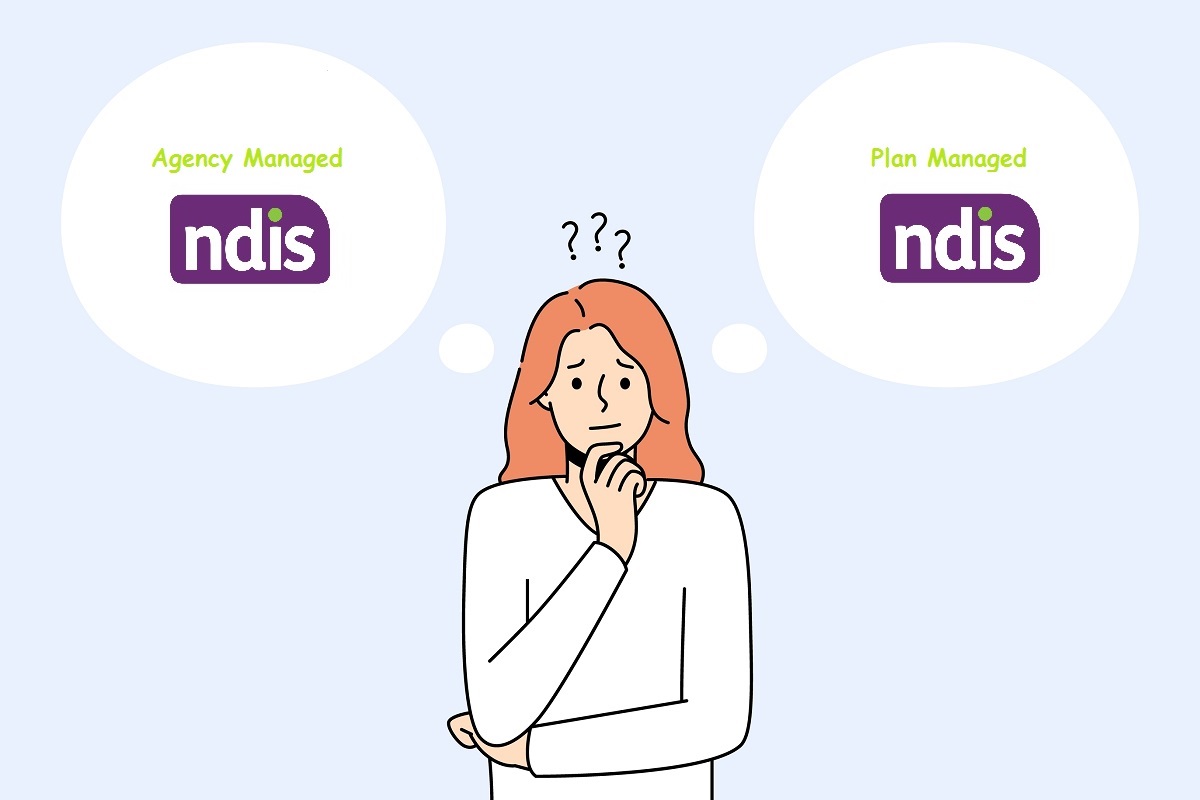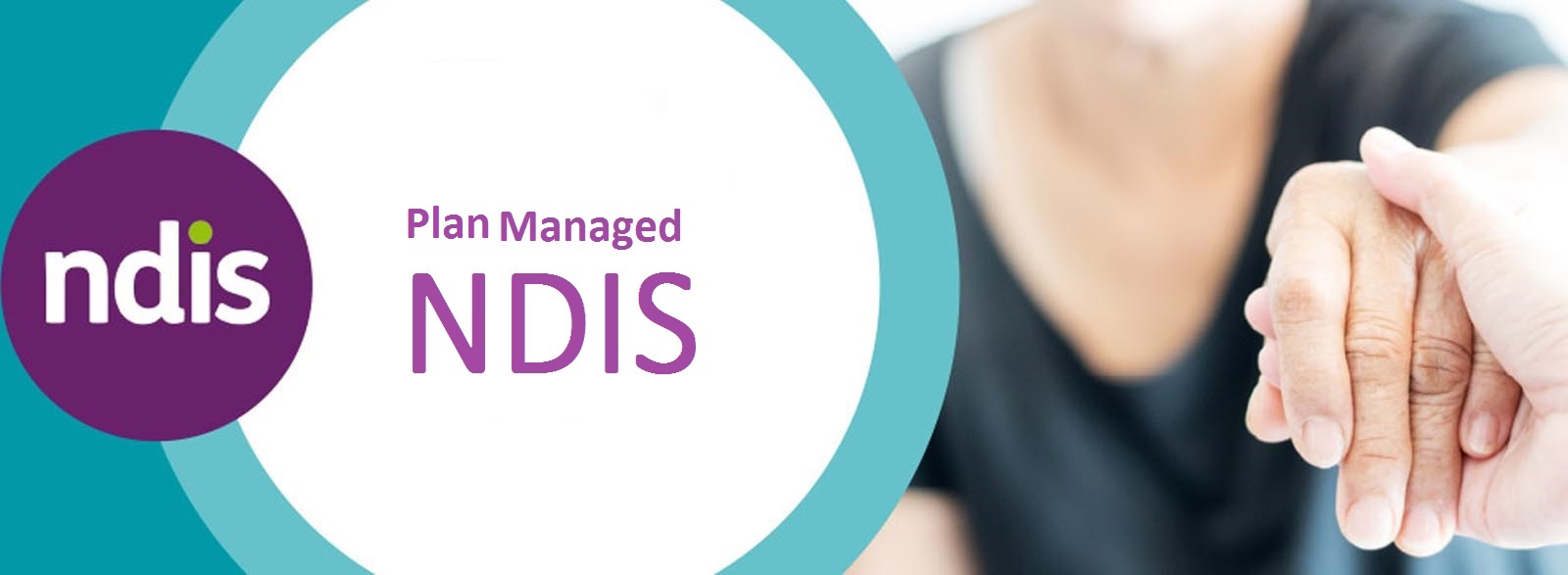Key Differences Between Agency Managed vs Plan Managed NDIS Plans

One of the most common questions we are asked at St. Jude’s is about the difference between NDIS agency managed vs plan managed fund management services.
When it comes to NDIS (National Disability Insurance Scheme) fund management, there are actually three options:
- Self managed
- Plan managed
- Agency managed
So, what are the differences, and which is most suited to you? Let’s take a look at each of them and help you determine which path to take when considering self managed vs agency managed vs plan managed options.
1. Self Managed

As the title suggests, a self managed NDIS fund bypasses involvement from third party fund managers. For many people with disability, this simply isn’t an option, as it can involve many complex financial arrangements that require expertise to understand. If you are able to manage your own fund or have a family member manage it, you may save some money by avoiding paying administrative fees. Self management also gives some people a greater sense of control over their services.
The major issue with this option, however, is that it takes an NDIS expert to navigate the legal and technical jargon that may otherwise get in the way of you receiving all the funding that you’re eligible for. Without that expertise, it is generally not recommended that people take this route, as it can often lead to people with disability not receiving adequate funding.
There are also a number of responsibilities which are left to the NDIS participant themselves to carry out, including:
- Finding and securing support services which align to their NDIS plan goals
- Setting agreements with providers about which supports are needed, how they will be provided, and how much they will cost
- Keeping track of all invoices and receipts for bookkeeping purposes
- Acting as an employer of these support services – making sure that they are paid on time
- Demonstrating how you have utilised your self managed funding in your plan review, and showing evidence that they are contributing to your NDIS goals
- Making sure to advise the NDIA of any significant changes in your personal circumstances which may result in you being unable to self manage your NDIS plan
- Partake in payment auditing, where you will have to provide evidence of invoices and receipts to demonstrate how funds have been spent in line with your NDIS plans (these records should be kept from the past five years)
As discussed above, there are numerous responsibilities which are left to the NDIS participant when they choose to self manage. It is important to assess whether these responsibilities are possible for the NDIS participant to undertake on their own. If not, they may seek one of the below two options; Plan Managed, or Agency Managed.
2. Plan Managed

This plan management option allows you to employ a third party plan manager to handle the administrative work involved with procuring support services from the National Disability Insurance Agency (NDIA). They must therefore be a registered NDIS provider.
With a plan manager you will have the same flexibility of service provider choice for your plan supports as you would under self-management. The key difference is that plan-managed supports cannot be paid at a rate higher than the NDIS price guide. The plan manager, however, can negotiate on your behalf to pay a lower price for services in order to maximise your funds.
The key benefits of using a plan manager is that they will take care of the financial and administrative aspects of your plan, such as paying your providers for the supports you purchase, tracking your spending, and taking care of financial reporting. This option is paid for separately out of the NDIS plan and does not affect any of your other supports.
The NDIA will pay your plan manager, and then the plan manager will then use the funds to directly pay the providers.
3. Agency Managed

When your plan is managed by an NDIS disability agency like St. Jude’s, your services must come from the list of NDIS registered providers. Being registered with the NDIS ensures a high standard of practice, so while your options may be somewhat limited, you can be assured that you’re getting the best possible care.
An agency managed plan uses a streamlined electronic portal system which makes service procurement and payment to your service providers much simpler. This helps to keep administrative work and its costs to a minimum, as providers are paid directly and there is no third party. The NDIA also manages your booking-keeping and records to keep you on top of your budget.
It is key to note that with an agency managed plan, all services are paid at the price guide rate, so you can’t negotiate with providers to stretch your NDIS funds further.
However, it is ensured that your service providers are following best practices to maintain the highest possible standards in line with registration. This is because with the agency managed option, you are only able to choose from registered providers only, which means that a client has access to high quality NDIS support services.
Which is best for me?
As you can see, there are some important factors to take into consideration when comparing NDIS plan managed vs agency managed funding. In some cases, the participant will be able to have an element of control over their plan and the services they wish to take advantage of. However, in some cases it is decided by the NDIA, based on the abilities of the participant.
Taking the self-managed option gives you a greater degree of control to spend your funds exactly on the NDIS providers you want, including non-registered providers. However, this requires significant administrative work to manage your own plan funds, therefore making NDIS self management a job in itself. This is also not an accessible option for all NDIS participants, particularly for those who may need some extra support.
Choosing agency management, on the other hand, means you can get on with your life and do the things you want to do, rather than being tied up with hefty administrative responsibilities. NDIS support coordination will ensure that your funds are maximised so that you get the best out of it.
There is also some flexibility, as there is also the option that a person can use a combination of all three. For example, a person can receive their Daily Living supports (assistance with self care) through agency management (giving them access to NDIS registered therapy providers), but choose to self manage their Core Support (daily consumables and everyday use items). This allows a person to have an element of control over how much is spent on items, whilst still receiving the benefits of NDIS registered support services.
Personal, tailored NDIS support at St Jude’s
Deciding which agency you want handling your NDIS fund is not to be taken lightly, but with over 40 years of experience in supporting people with a wide range of support needs, St. Jude’s Disability Services are the most trusted in Western Australia and Queensland.
Our support coordinators work with clients to help them understand their NDIS plans and aid in connecting them to the appropriate service providers which are in line with their goals identified on their NDIS plans. Our support coordinators can offer three levels of support depending on the needs of the client; support connection, support coordination and specialist support coordination.
No matter what your needs are, as a reputable NDIS service provider, we can offer you the most flexible and tailored support, so don’t hesitate to contact us to find out exactly how we can help you reach your plan goals.
|
|


